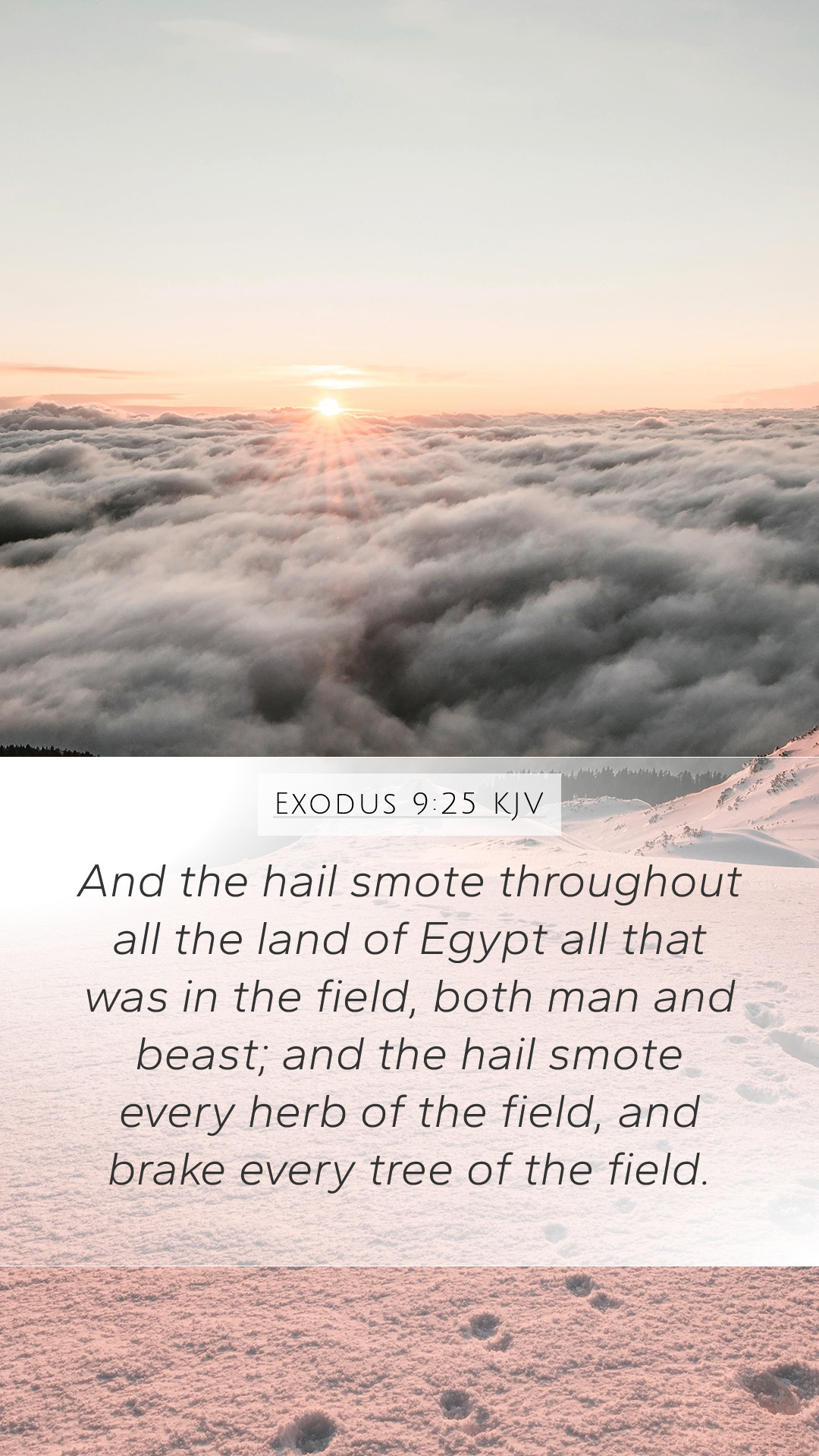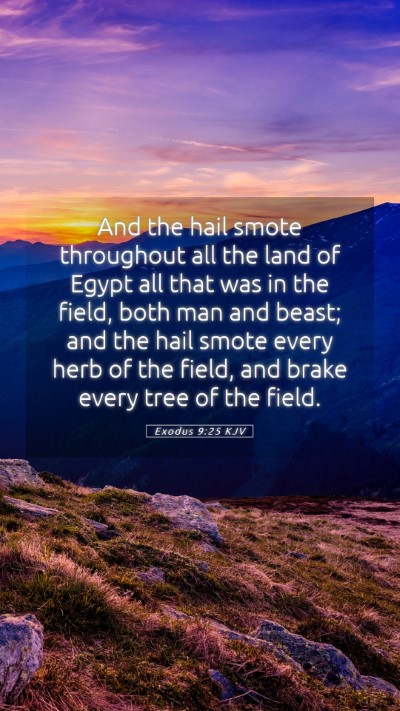Understanding Exodus 9:25
Exodus 9:25 (KJV): "And the hail smote throughout all the land of Egypt all that was in the field, both man and beast; and the hail smote every herb of the field, and brake every tree of the field."
This verse describes one of the plagues that God inflicted upon Egypt as part of the story of Moses leading the Israelites out of slavery. The devastation caused by the hail serves not only as a physical manifestation of God’s power but also as a spiritual call to the Egyptians and Pharaoh to recognize His sovereignty.
Bible Verse Meaning and Interpretations
The importance of understanding this verse lies in its representation of divine judgment. Commentators such as Matthew Henry, Albert Barnes, and Adam Clarke provide insights into its significance:
- Divine Judgment: The hail represents a direct punishment from God for Pharaoh's refusal to let the Israelites go. Matthew Henry emphasizes that this was not just an ordinary storm; it was a supernatural event aimed at demonstrating God's might.
- Impact on Creation: Albert Barnes notes the widespread destruction wrought by the hail, affecting both humans and livestock. This underscores God’s authority over all aspects of creation, asserting that even nature itself responds to divine command.
- Symbolism of Hail: Adam Clarke interprets hail as a symbol of divine wrath. The massive hailstones can be seen as a foreshadowing of the ultimate judgment faced by those who oppose God.
Context and Historical Significance
To gain a deeper understanding of Exodus 9:25, it’s essential to consider the historical context of the Exodus narrative, often explored in Bible study groups and online resources.
This event takes place within the broader narrative of the ten plagues, which are crucial in revealing God's character and the seriousness of disobedience. The plagues serve multiple purposes:
- To demonstrate God’s power over the Egyptian gods.
- To reinforce the idea that God is a protector of His people.
- To serve as a catalyst for the eventual liberation of the Israelites.
Application of Exodus 9:25 in Daily Life
Readers often seek the application of biblical verses to their daily lives. Exodus 9:25 serves as a powerful reminder of the consequences of ignoring divine authority. In contemporary times, this could translate to:
- Recognizing the limit of human power in the face of divine determination.
- Understanding the importance of obedience to God's will.
- Reflecting on how actions (or inactions) can lead to collective consequences.
Bible Verse Commentary and Insights
The commentary on Exodus 9:25 offers a wealth of biblical insights. Through radio programs, Bible study lessons, and various Bible study tools, one can delve deeper into its meanings. The verse’s analysis highlights:
- The comprehensive nature of God’s judgment - affecting all of Egypt, which signifies that disobedience to God has widespread repercussions.
- The urgency of acknowledging God’s authority before facing dire consequences.
Cross References
For a more comprehensive understanding, consider these related verses:
- Exodus 7:17 - The first plague and the demonstration of God's power.
- Deuteronomy 28:22 - Curses that befall disobedience.
- Psalms 105:32 - A reference to the plagues that afflicted Egypt.
Conclusion
In summary, Exodus 9:25 stands as a significant marker of God's judgment during the Exodus. Through the contributions of key commentators, we glean insights on the implications of divine authority, the seriousness of sin, and the call for obedience that resonate through ages. This verse is a central part of understanding the broader themes in Scripture and the message God conveys to humanity.


